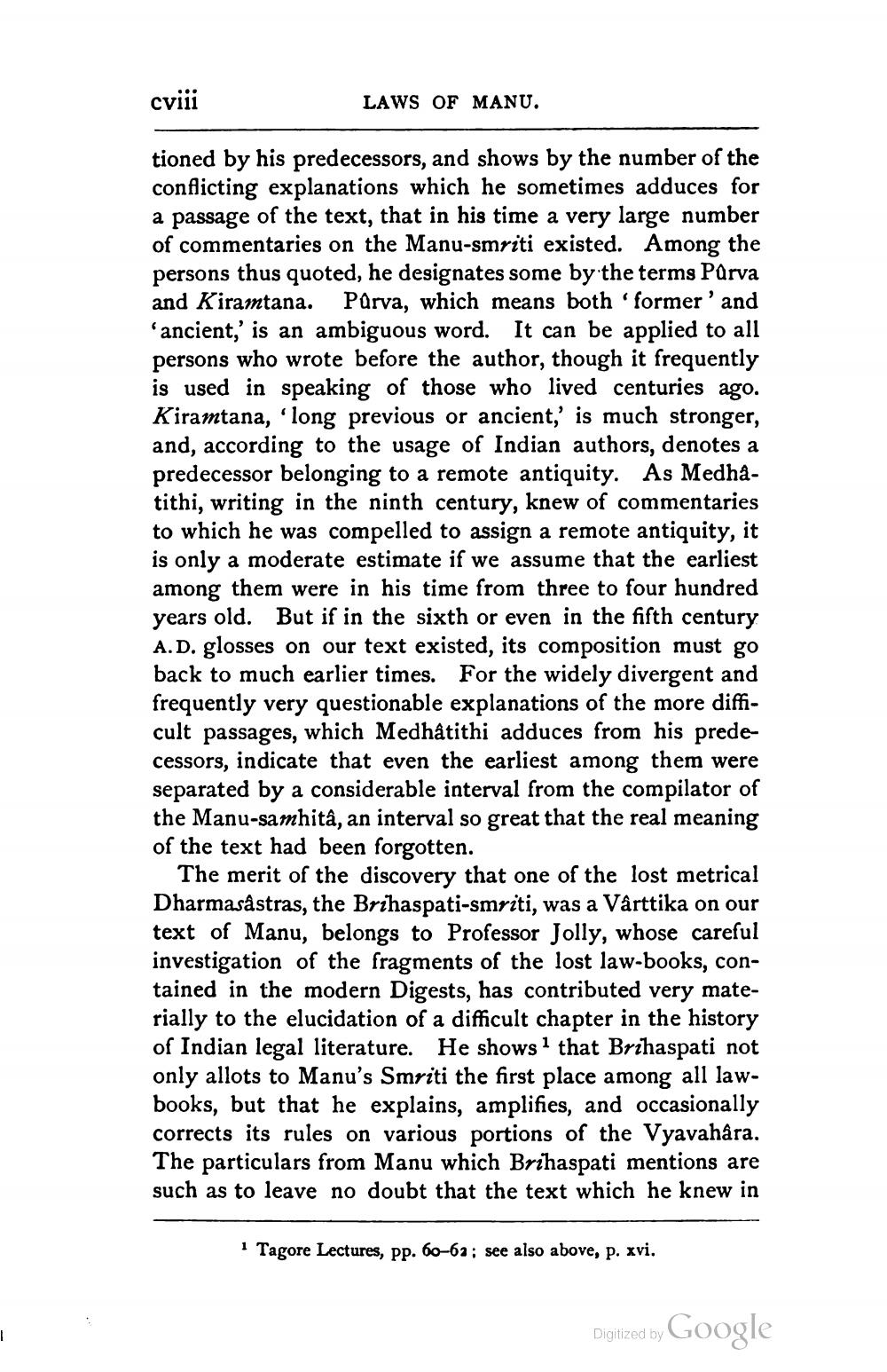________________
cvili
LAWS OF MANU.
tioned by his predecessors, and shows by the number of the conflicting explanations which he sometimes adduces for a passage of the text, that in his time a very large number of commentaries on the Manu-smriti existed. Among the persons thus quoted, he designates some by the terms Parva and Kiramtana. Parva, which means both 'former' and 'ancient,' is an ambiguous word. It can be applied to all persons who wrote before the author, though it frequently is used in speaking of those who lived centuries ago. Kiramtana, 'long previous or ancient,' is much stronger, and, according to the usage of Indian authors, denotes a predecessor belonging to a remote antiquity. As Medhatithi, writing in the ninth century, knew of commentaries to which he was compelled to assign a remote antiquity, it is only a moderate estimate if we assume that the earliest among them were in his time from three to four hundred years old. But if in the sixth or even in the fifth century A.D. glosses on our text existed, its composition must go back to much earlier times. For the widely divergent and frequently very questionable explanations of the more difficult passages, which Medhâtithi adduces from his predecessors, indicate that even the earliest among them were separated by a considerable interval from the compilator of the Manu-samhita, an interval so great that the real meaning of the text had been forgotten.
The merit of the discovery that one of the lost metrical Dharmasastras, the Brihaspati-smriti, was a Vârttika on our text of Manu, belongs to Professor Jolly, whose careful investigation of the fragments of the lost law-books, contained in the modern Digests, has contributed very materially to the elucidation of a difficult chapter in the history of Indian legal literature. He shows that Brihaspati not only allots to Manu's Smriti the first place among all lawbooks, but that he explains, amplifies, and occasionally corrects its rules on various portions of the Vyavahâra. The particulars from Manu which Brihaspati mentions are such as to leave no doubt that the text which he knew in
1 Tagore Lectures, pp. 60-62 ; see also above, p. xvi.
Digitized by Google




